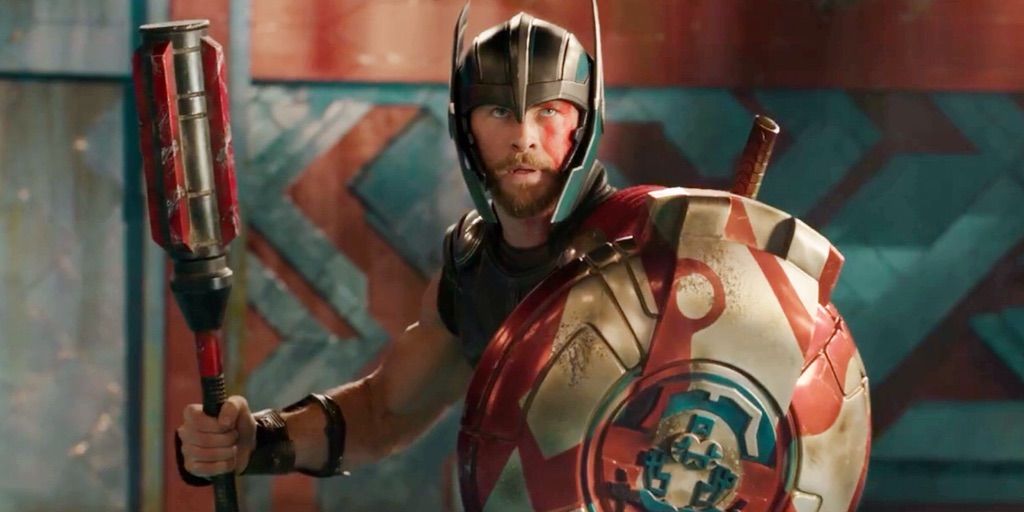Thor has always been a bit of a black sheep in terms of Marvel’s Cinematic Universe franchises. The first Thor was a fun enough fish-out-of-water story and The Dark World was a bit more muddled in its forced formulaic construction, but both films suffered from leaning into the high operatics of their fantasy characters and settings to the tonal disharmony with the rest of Marvel’s stable of Avengers. It then seems like a bold move for Marvel to place at the helm of Thor: Ragnarok one Taika Waititi, a filmmaker known for his irreverence grounded in observation of the mundane as absurd and vice versa. However, it was absolutely the right move, as Ragnarok is not only head and shoulders above its predecessors, it breathes an entirely new life into the most stagnant Avenger.
This isn’t to say that the film is entirely comedic, though it certainly encourages its fair share of laughs; rather, Waititi’s matter-of-fact eye for the ridiculous only takes the story of superpowered space Vikings as seriously as that phrase merits, with self-acknowledging winks littered throughout that never push so far as to break the fourth wall or a suspension of disbelief. After some thankfully quick business cleaning up the messy cliffhangers left over from The Dark World, Ragnarok establishes itself as first and foremost an adventure film, posing the question of what the source of Thor’s power actually is as Thor (Chris Hemsworth, allowed to flex his comedic muscles with his literal ones to great effect) becomes entrapped in an alien gladiatorial arena under the control of The Grandmaster (Jeff Goldblum at his, uh, Goldblum-iest) while his newly discovered sister Hela (Cate Blanchett, chewing some mad scenery) takes Odin’s throne in Asgard and proceeds to subjugate the common folk to her will. With the supporting help of Loki (Tom Hiddleston), the Hulk (Mark Ruffalo), and a constantly drunk Valkyrie (Tessa Thompson), Thor must escape to restore the rightful order to the throne of Asgard.
From a production standpoint, Ragnarok may be the truest and most gorgeous realization of comic creator Jack Kirby’s vision of cosmic scenery, complete with starkly contrasting colors, hard angles, and circular designs adorning everything. It lends the film a retrofuturistic aesthetic complemented by the synth-heavy soundtrack, bringing us to a time when comics were appreciated for the fanciful flights of speculative science fiction Marvel created at their twentieth century height. And of course, Waititi sees that as fodder for exploring alien character dynamics and wry observations about basic human nature, but there’s also something else clearly on his mind here. Without getting too heavy into plot details, Ragnarok has some very prevalent anti-imperialist subtext, wherein a major plot point revolves around a people coming to grips with the role they played in tragedies of the past. This all exists under the surface of a fun fantasy action flick, but it’s there all the same and it offers a bit of depth to what might otherwise have been a fairly light romp.
Unfortunately, Thor: Ragnarok suffers from many of the same weaknesses as other Marvel properties, namely in how the film is so beholden to establishing inter-franchise connectivity that the film lingers on an extended cameo for the sole purpose of tying a character in to the Avengers fold for the upcoming Infinity War. Ragnarok stands on its own well enough otherwise, particularly in terms of tone and aesthetic, but the moments when the creeping hand of extended continuity intrudes are more jarring here than in most other installments.
Even so, Thor: Ragnarok is another clear winner for the Marvel Cinematic Universe. Witty, action-heavy, and beautiful to look at, this easily outclasses the unnecessarily drab earlier entries in the Thor canon and gives the god of thunder a unique identity he has desperately needed for years.













